This post is part of the William Wyler Blogathon currently hosted by The Movie Projector. Spoiler alert: proceed with caution!
In 1950, Vivien Leigh and Laurence Olivier returned to Hollywood after a 10-year hiatus. In the intervening years, much had changed for Scarlett and Heathcliff. They were married in late 1940 and almost immediately sailed for England, leaving the luxurious life behind for one of buzz bombs and gas masks. During the war, both rose to prominence on the London stage and Olivier also became one of Britain’s most revered film directors by successfully bringing Shakespeare to the screen. He became the youngest ever Actor-Knight in 1947, and the following year he and Vivien achieved legendary status in the eyes of the public when they led a successful Old Vic tour of Australia and New Zealand. When they again stepped foot on California soil, they were no longer Laurence Olivier and Vivien Leigh but The Oliviers, a combined cultural icon idolized by fans and fellow actors alike.
Vivien had been lured back to Tinsel Town to play Blanche in A Streetcar Named Desire and Olivier had come to offer support. Playing the role on stage for nine months had drained Vivien and they didn’t want to risk a long separation. Looking for a challenge to fill the time, Olivier signed on to star in the film adaptation of Theodore Dreiser’s controversial turn of the century urban novel Sister Carrie. The film reunited Olivier with director William Wyler, who had been instrumental in helping the actor appreciate the film medium during the grueling making of Wuthering Heights in 1938/39.
Carrie Meeber (Selznick discovery Jennifer Jones, who was married to the producer at the time) is a young girl from Wisconsin who leaves home at 18 in search of the American Dream. On board the train to Chicago she meets the suave and slightly creepy Charles Druet, who takes an immediate interest in her solo status and fresh looks. Carrie stays with her sister and her Swedish husband in a tenement flat on the wrong side of town and finds work in a shoe factory to help pay the rent. But her cheerful outlook quickly sours and she ties of the monotonous labour and meager pay. After suffering an injury-by-sewing-machine, Carrie is fired from her seat in the assembly line and turns to Druet out of desperation. But instead of helping her find a job, Druet just makes her his kept woman.
On the first evening of their relationship, Druet tells her to meet him at Fitzgerald’s, the swankiest restaurant in Chicago. There she meets the proprieter, George Hurstwood (Olivier). Hurstwood, though middle-aged, immediately takes an interest in Carrie and we soon learn that he’s got a sad life at home with his grown kids and gold-digging harpy wife. Soon George is taking Carrie to the theatre and showing her a bit of culture with some extra benefits on the side. But George is good at keeping secrets. Carrie only finds out about his wife and family after she’s fallen in love with him, and is convinced he’s just using her as a cheap toy.
George’s love for Carrie is real enough and he asks his wife for a divorce. She refuses and threatens to ruin him, but George won’t be blackmailed. Instead, he accidentally embezzles a large amount of cash from the safe at Fitzgerald’s and under the pretext of Charles Druet’s (fabricated) illness, convinces Carrie to run away with him to New York where they can marry. It’s not long, however, before George’s secret is discovered, bringing about an onslaught of consequences for both of them that results in Carrie’s rise to success–albeit not happiness–as an actress and George’s rapid descent into poverty and his eventual suicide in a homeless shelter.
Screenwriting team Ruth and Augustus Goetz did well in keeping many of Dreiser’s themes in tact–namely the realism of human nature in the face of Victorian morals, and the hardships of working-class America in the early 20th century–but the film is otherwise firmly stamped with the red ink of the Production Code. In the Old Hollywood Rule Book there is a high price to pay for those who lie, steal, cheat, or attempt to have sex outside of marriage. Although all of the above are done with good intentions in Carrie, our characters are still punished for their misdeeds. As if it’s not bad enough that they have to live in squalid conditions straight out of an Upton Sinclair novel and George can’t find a decent job after being blackballed from every good restaurant east of the Mississippi, Carrie has a miscarriage and learns that her marriage to George is illegal because Mrs. Hurstwood never gave him that divorce. In the end, they both search for a little absolution but neither of them find it; we reap what we sew, even if we’re honest.
In addition to a compelling story, the real gem of Carrie is the acting. Olivier didn’t care much for Jennifer Jones during the making of the film and would often write to Vivien (while she was in New Orleans doing location work for Streetcar) expressing his frustration. Jones is good in the finished product but the highlight is Olivier who gives one of the best performances of his career. I find him quite astonishing when he’s playing an average guy (see also Term of Trial, The Entertainer and/or Bunny Lake is Missing). He often liked to tell the story of how Wyler brought him down a peg or two during the making of Wuthering Heights by criticising his pompous attitude. In Carrie, there is no room for theatrics. Olivier is forced to make the best of a character who is given no platform whatever to perform and he does it with heartbreaking aplomb. He even puts on a non-regional American accent and you can’t help but give him an A for his effort.
Although Carrie was nominated for two Academy Awards and Olivier received a BAFTA nod for his performance, the film is little known today. However, it is available in DVD in the States and, if you’re lucky, you maybe able to catch it on TCM on occasion. Don’t mistake it for Brian DePalma’s Stephen King adaptation. There are no buckets of pigs blood to be found here. Carrie is one of the hidden gems of both Olivier’s and Wyler’s careers. But perhaps the fact that it’s not well known is actually a good thing. Now you can all go discover this treasure of 1950s Hollywood cinema on your own.
Grade: A

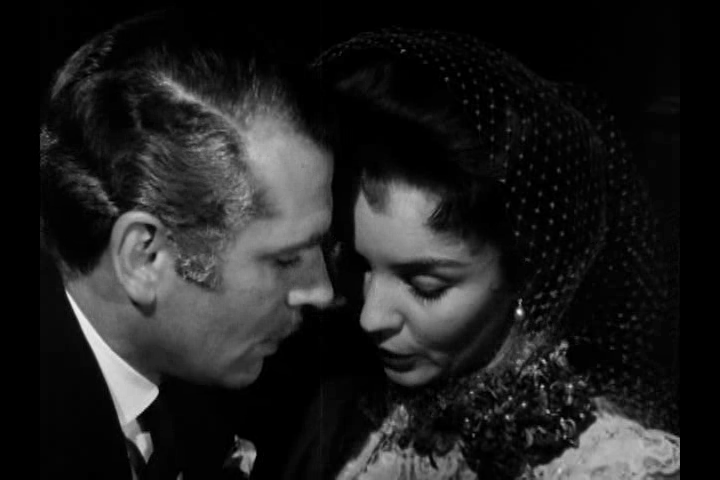
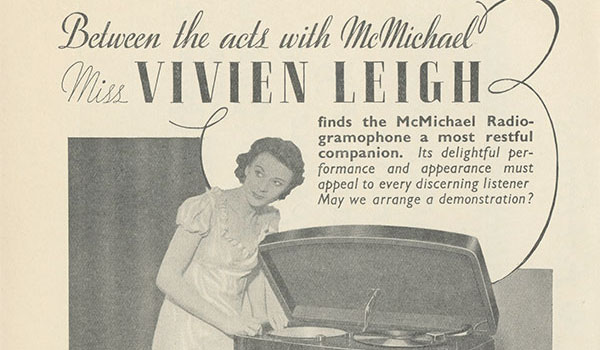
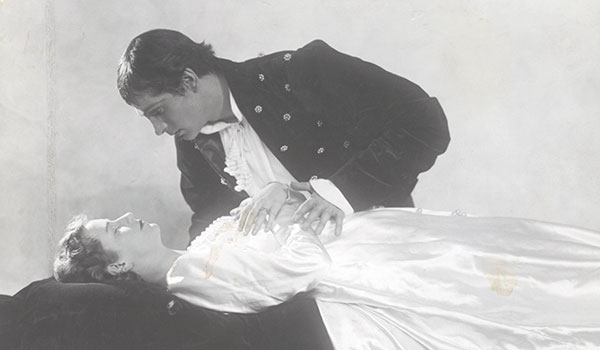
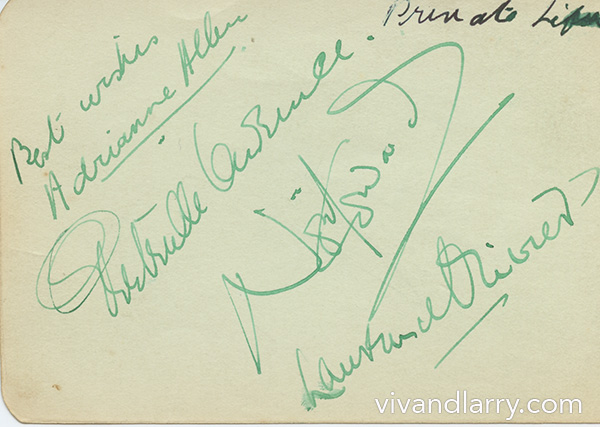
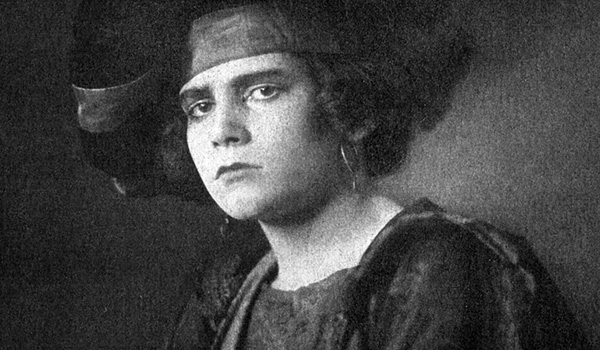
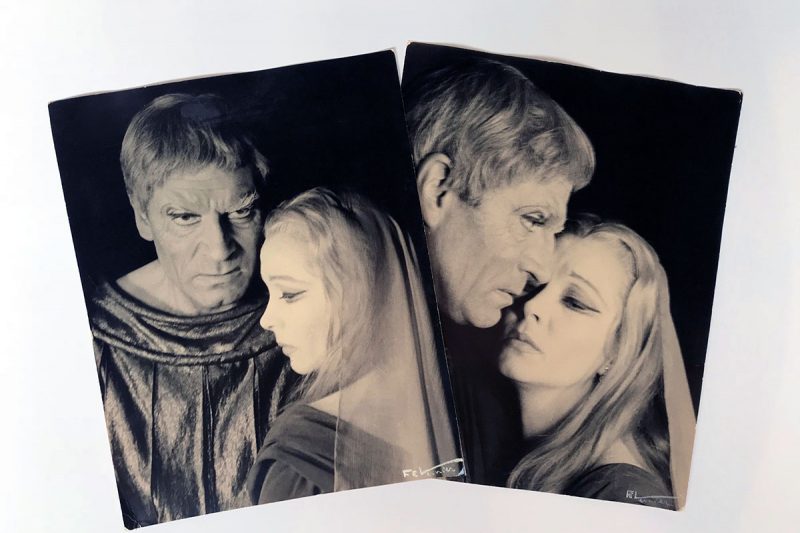
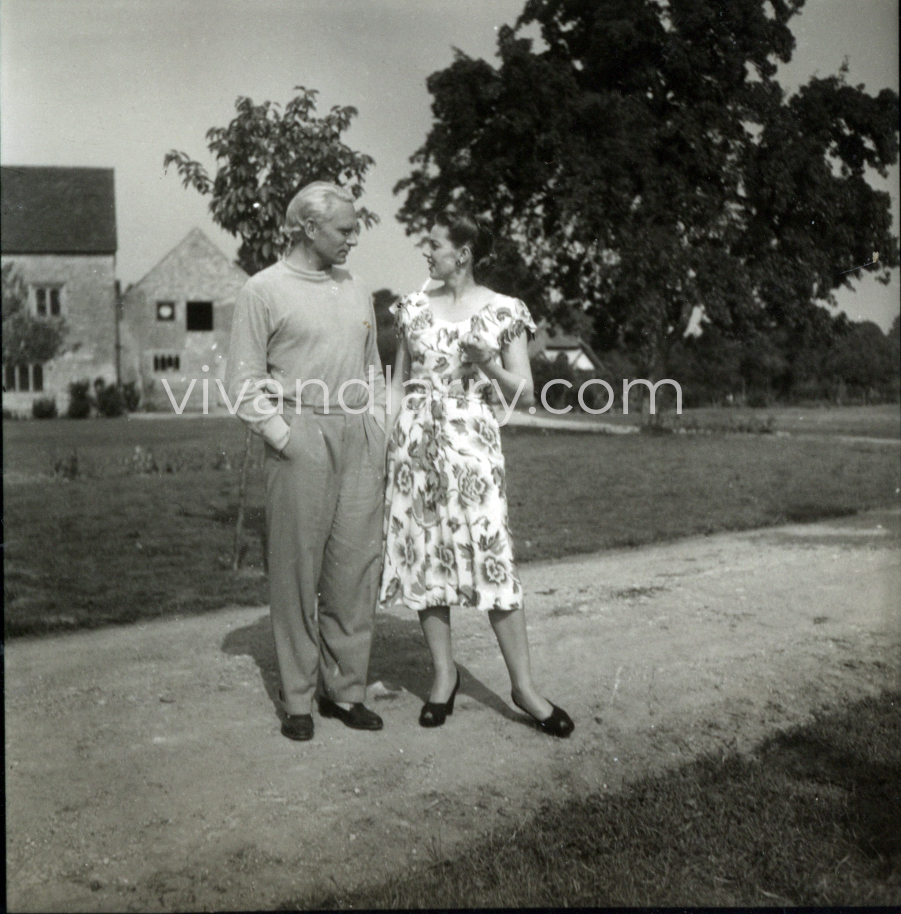
Terrific post on what should be a better-known film. I agree that it really belongs to Olivier. Jones is very good at conveying Carrie’s awkward innocence and she brings (as she always did in her acting) a subtle neuroticism to her character. But Olivier is the picture’s heart and soul. You make an excellent point how his Hurstwood is really an average man who’s brought down by his extraordinary obsession with Carrie; he seems swept away by something out of his control. Let’s hope TCM shows it more often!
Thanks very much! I think Wyler gets a lot of the credit for reigning Larry in with this role, but he did go on to use the skills in a few of his other films. It’s always nice to see him adapt to the circumstances of the screenplay. Either way, though, larry certainly stole just about every show he appeared in. A fellow stage actor once said he’d never again act with either Vivien Leigh or Laurence Olivier because no one even pays attention to anyone else when they’re up in the footlights I think this is was true for their films, as well. Amazing screen presence.
“Sister Carrie” is one of my all-time favorite books! I saw the film adaptation for the first a year ago when i ordered it from Netfix (they sent me De Palma’s “Carrie” two times before they got it right). I have since purchased a copy and have watched it often. It’s a wonderful film and I very much enjoyed your detailing the pleasures to be found in Olivier’s outstanding performance. Too bad it’s not more well known. The US DVD even has a deleted flophouse sequence. Thanks for a very enjoyable, very well written post about a film favorite.
I’ve not read the book but it’s certainly a good film! I agree it’s a shame that it’s not better known. When speaking of Olivier’s film achievements it’s always his SHakespeare and late 30s/early 40s Hollywood films but this one, in my opinion, is the real gem
Kendra, this is a concise but thorough post on one of Wyler’s least-known films but one that I agree should be seen by everyone interested in his film directing career and especially in Olivier’s screen performances. He doesn’t come into the film for a little while after it begins, but once he does it’s his movie all the way, despite Jennifer Jones playing the title role. It seems a crime he didn’t get an Oscar nomination, although he was a contender for best actor in the NY Film Critics awards.
Jones isn’t a real favorite of mine although I admit she was quite effective in roles that concentrated on her ability to project girlish earnestness. She also has a lot of fans, especially of her work in the 1940s, and I think those people should see this film too, because it gives her the opportunity to mature from that girlish persona into a more adult one. Wyler was always very good at capturing period feel, and I think that along with Olivier, this is the greatest strength of the picture. It’s interesting that you called Eddie Albert’s character slightly creepy. That was my reaction too. He’s quite convincing as in an unusual role different from the nice guys he usually played. There’s a definite hint of the sinister, not to mention the exploitative, about him.
I don’t think the film quite captures the dark determinism of Dreiser, opting instead to emphasize the doomed romance aspect of the plot. But it comes very close in Olivier’s downfall in the second half of the movie. The DVD I watched recently had the scene with Olivier in the flop house, which I understand was deleted from the release version because of concerns it might draw too much attention from the anti-Communist witch hunters of the time. For me it was the best scene in the movie–a perfect convergence of Wyler’s tremendous directing skill and Olivier’s tremendous acting skill.
Thanks for doing this film for the blogathon, and the catchy title of your post is absolutely right on!
Thanks for hosting a great blogathon, RD! It baffles me that he didn’t get an Oscar nom., as well. Surely it’s one of his best performances, his subtlety and ordinariness making it all the more impressive.
Interesting what you say about the darker elements in Dreiser’s novel. I suppose the “romantic” angle had to win out as it was a Hollywood film. I’d be interested in seeing the deleted scene on the DVD!
You did pick one of the rarer ones, didn’t you. I agree, Olivier is much more palatable as average guy. Nice work. All that research has paid off.
I have to admit I was assigned this one. My first instinct was to write about Wuthering Heights, which is my favourite film. But RD did well in asking me to write about it and I enjoyed stretching my wings a bit 🙂
I saw this a few days ago and must agree it is a great film,
especially Olivier’s heartbreaking performance – possibly Wyler’s
greatest out of those I’ve seen so far, and it certainly deserves to
be better known. I do like Jennifer Jones’ performance, and Miriam
Hopkins is good in a support role as the contemptuous wife, but it is
Olivier’s film all the way. I now need to read Dreiser’s novel and
then see the movie again. Congratulations on a fine posting!
Kendra, I was utterly crushed when I found out this film had already been taken. But, seeing that you got to review it (and wonderfully), I guess it is only fitting! I LOVE Olivier’s performance in this film. It is – by far – my favorite of all his film performances. His portrayal of Hursywood’s autumnal passion for Carrie is heartbreaking. Anyone who has a romantic bone in their body needs to see this.
When I watch this film, I always have a box of tissues, because I cry every time I see it! Larry is so convincing in this role, he actually has me believing he’s this tragic character! One time I actually shouted out “Stop it Larry you’re killing me!” Leaves me absolutely emotionally drained!
I agree, it is absolutely Larry’s best performance by far, followed by his performance in “Term of Trial” , especially his emotional plea to the court protesting his innocence after they find him guilty of molesting a student of his. Anyway, “Carrie” is a great film!
Comprehensive review. I saw this years ago and after reading this realize I need to see it again. I give Jones credit for wanting to stretch as an actress, but Olivier is the reason to watch. He is just so good, and I like your assessment about Olivier playing ordinary men well.
yes, it’s heartbreaking to see Larry in such downbeat role but what a masterpiece his performance is! The best portrayal of a man obsessively in love ever seen on the screen,in my opinion
Kendra, “Carrie” may well be the best Olivier film I’ve never seen – I’ll have to find out for myself. I’m not too keen on Jennifer Jones, I suspect Selznick moved her career along much faster and further than it would have gone without his enormous clout. One of my favorite Olivier performances is his turn in “The Entertainer” and I look forward to seeing him in another “average guy” role (recently watched “Term of Trial” for the first time).
I’d highly recommend this film! And what did you think of Term of Trial? I thought he gave such a stellar performance in that.
Kendra, may I say that in my opinion these two roles have much in common?In both Olivier is an average man (as an average man as his noble looks allow him to look, of course..) with deep inner wounds that are only hinted at, in both his life is destroyed by a woman, in both he is magnificent, show these two movies to those who think of him first and foremost as the greatest stage actor of his time…
I have never seen this film, but it sounds really interesting. Great review!
Just saw this film. As mentioned in another review, Larry’s acting was indeed impeccable. Masterful.
Sister Carrie is a rather strange book in that George Hurstwood is actually the main character. I thought that this movie adapted it fairly well, maintained the themes, despite the restrictions of the Production Code. (I don’t think George ever does actually marry Carrie in the book.) It was hard enough for Dreiser to write it given the restrictions he faced!
Still, Carrie is shortchanged in this movie – her drive and materialism, along with basic common sense is missing.
What kept me watching it is that Olivier is mesmerizing!
Love Carrie, one of my favourite films. Watched it only this week. It’s Drouet, by the way. Also, there was no proof that George committed suicide although it was, maybe, hinted at. (Haven’t read the book so the suicide idea may come from that but it’s not in the film.) I like to think that Carrie followed him out of the theatre and persuaded him to come home with her and stay. Now that he had his divorce, and they both obviously loved each other, there was absolutely no reason why they couldn’t get back together. After all, they’d been missing each other because of ironic twists, bizarre coincidences and daft misunderstandings. Larry can do no wrong in my book.
My only complaint with most of the film reviews here is that there are no spoiler alerts. I had hoped to read some interesting backstory on “Carrie” (and a couple of others), and I came away highly educated, as well as highly disappointed. I will still watch “Carrie”, but please be mindful in the future of giving away crucial plot points.
Good flick, but be forewarned it is not an easy film to watch. Frank treatment and stark realism tend to make the movie quite depressing. Don’t watch this film if you’re going through difficult times in your personal life. Good acting overall, though.